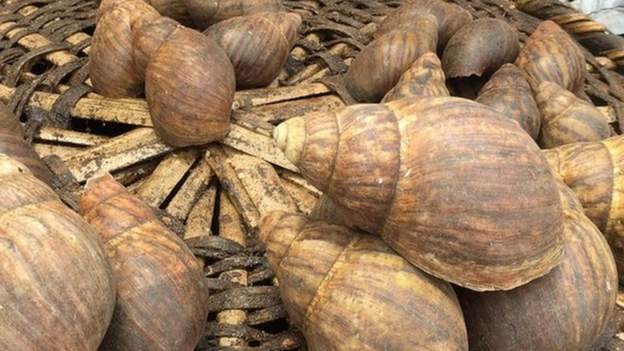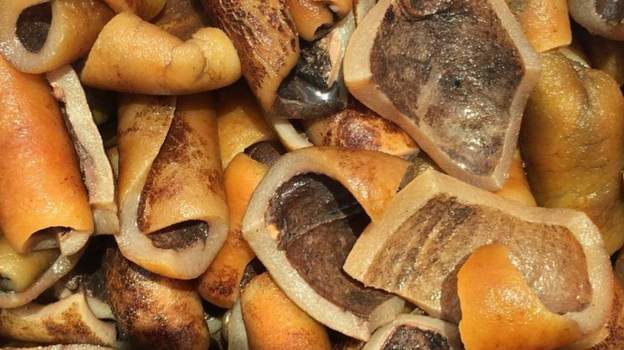‘Sperm booster’ – how Nigerian snails became popular
Certain foods in Nigeria once considered as poor man’s fare are today favourites of the more wealthy too – mainly because of their health benefits.
Here are five foods whose fortunes have changed:
- Cow hide, known as “ponmo”, is now often served as a peppered delicacy – and unlike beef is low in cholesterol. When an agriculture minister tried to ban it in 2014 to encourage the production of leather, there was a public outrage and he had to backtrack
-
- Plantain is now out of reach for many people as it in such high demand from those on special diets for diabetes or hypertension making it quite expensive
- Snails, once spurned by those who do not like the tedious process of getting them ready to cook, are also now popular because they are low in calories, considered a “sperm booster” and thought to help those recovering from malaria

-
- Garri, made from cassava flakes, is eaten as a cereal with water or as “eba”, a porridge ball. A growing awareness of the importance of consuming food high in fibre is making this indigenous staple a popular alternative to Western fare
- Frozen fish was never considered in the same league as fresh fish, but it is no longer derogatorily referred to as “Ókù Ékò”, a Yoruba expression meaning “Lagos corpse”, or “Àkpa asuko nse” meaning “You are dead and yet you are staring at me” in Ibibio. Such is its appeal that today 80% of fish consumed in Nigeria is imported.






